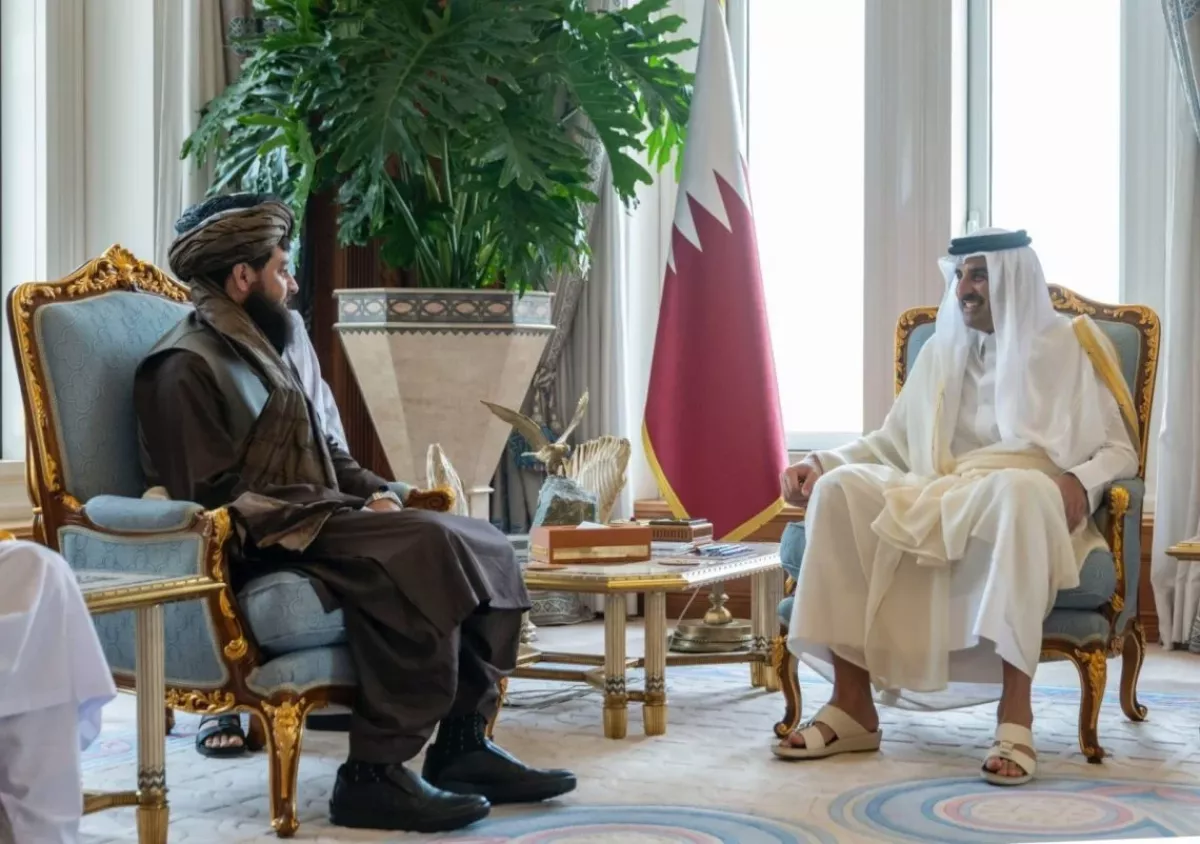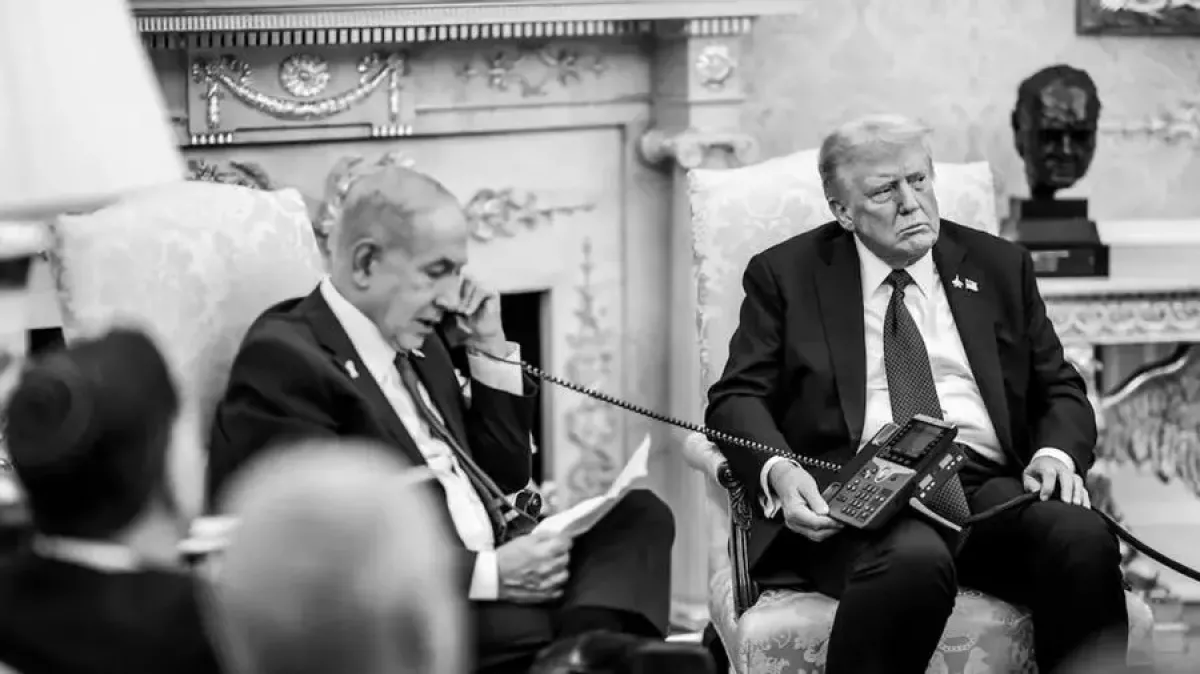Qatar's path to becoming global mediating force
Despite sporadic outbreaks of violence in Gaza, the fragile ceasefire signed by Israel and Hamas on October 9 appears to be holding. The agreement followed weeks of intensive diplomacy led by US President Donald Trump, but behind the scenes stood a sophisticated, multi-actor mediation system in which Qatar played a central role—reflecting the small Gulf nation’s rise as a leading global mediator over the past two decades.
US leverage over Israel was crucial in securing the October deal, yet Qatar and Egypt—later joined by Türkiye—provided the core mediation infrastructure. They maintained direct channels with Hamas, engaged in shuttle diplomacy, and exerted sustained pressure on the group to reach an agreement, as noted in an article by World Politics Review.
Ongoing diplomatic engagement remains essential to implement and monitor the agreement, as further flare-ups, clashes between Hamas and rival factions, or localised resistance could easily derail it. Qatar is expected to continue playing a key role in the coming weeks and months, largely because it is one of the few actors able to communicate directly with Hamas while also wielding financial leverage.
Qatar’s involvement in the Gaza ceasefire follows more than a decade of mediation experience. Its work on the Gaza dossier began with the opening of the Hamas office in Doha in 2012 and its participation as a mediator alongside Egypt during the 2014 Israel-Hamas war. The article’s author quotes a senior US official who said that Qatar could not be excluded from mediation because of its strategic reach—a status earned through two decades of diplomatic groundwork.
Vast experience in mediating role
In the late 2000s, Qatar engaged in several major mediation initiatives, including resolving the 2008 Lebanese presidential crisis, brokering ceasefires during the Houthi rebellion in northern Yemen (2007–2008), and helping negotiate a peace agreement in Sudan’s Darfur region. Qatar became known as a culturally attuned, relatively neutral, and effective mediator, reinforced by significant financial resources—an advantage uncommon for small-state mediators, who often rely primarily on persuasion.
Qatar’s mediation role diminished with the onset of the Arab Spring in late 2010, when Doha actively supported the “Arab Street” and armed revolutionary groups opposing authoritarian rulers. As a result, the country became directly entangled in regional crises it might otherwise have mediated. The subsequent Gulf Crisis—culminating in the Saudi-led blockade of Qatar from June 2017 to January 2021—further constricted its diplomatic reach.
Nevertheless, the publication highlights that Qatar never abandoned mediation, even during this tumultuous period. Instead, it quietly expanded its diplomatic capacity. At the request of the US, it established political offices for Hamas and the Taliban in Doha in 2012. It also strengthened its institutional architecture by creating an Office of the Special Envoy for Counterterrorism and Mediation in Conflict Resolution in 2016 and by supporting nonstate actors who could serve as complementary diplomatic channels.

In recent years, Qatar has reemerged as a major global mediator. As the article recalls, the Trump administration’s February 2020 agreement with the Taliban—paving the way for the withdrawal of US forces from Afghanistan—was widely regarded as a milestone in Qatari mediation, representing nearly a decade of effort.
The lifting of the blockade in 2021 removed constraints on its diplomatic ambitions, allowing Qatar to mediate or facilitate negotiations in conflicts ranging from the Somalia-Kenya border dispute to Chad’s political transition, the Rwanda-Congo tensions over M23, and, most recently, border clashes between Afghanistan and Pakistan. Qatar has also deepened its partnerships with major powers, most notably the United States, which named it a major non-NATO ally in 2022 and publicly recognised its global mediation role.
Shifting dynamics on geopolitical stage
Gulf mediation is often assumed to be driven by reputation-building or the pursuit of soft power.
For Qatar, mediation became a way to project the image of a proactive state committed to promoting international peace and security. Yet it also serves a self-preservation function: reducing regional tensions acts as a defensive strategy for a small state surrounded by much larger neighbours that frequently find themselves in conflict.
Qatar’s renewed prominence as a mediator has unfolded in a rapidly changing geopolitical environment characterised by rising multipolar competition, proliferating conflicts, and a breakdown of norms that once governed multilateral diplomacy and wartime conduct.
Israel’s Sept. 9 attack on the Hamas delegation in Doha illustrated this erosion of norms and set a troubling precedent for the safety of international mediators. Paradoxically, however, the failed strike—which killed five lower-level Hamas members and one Qatari security official but missed its intended senior targets—helped propel ceasefire negotiations forward by giving Washington grounds to pressure Israel into accepting a deal.
The attack also posed an unprecedented threat to Qatar’s mediation role, taking place amid rising risks in the Gulf during the summer of 2025. Months earlier, Iran’s highly choreographed strike on US forces at Qatar’s Al-Udeid airbase in June 2025 had already sent shockwaves through the region.
The 12-day Iran-Israel war further heightened regional anxieties. A major strike on Iran’s southern nuclear facilities could have caused catastrophic marine contamination, threatening the Gulf states, which depend on desalination for roughly 90 percent of their freshwater.

Rising tensions during the latest Gaza conflict have pushed the Middle East closer to full-scale war, making survival and security top priorities. Qatar’s response to direct attacks on its territory reflects this reality.
It mediated the Iran-Israel ceasefire on the same day Iranian missiles hit Al-Udeid airbase and returned to Gaza mediation within weeks of the Israeli strike in Doha, following an apology from Prime Minister Benjamin Netanyahu and strengthened US security assurances.
The article warns that normalising strikes on sovereign territory—especially when conducted by powerful states against small-state mediators—risks further degrading the norms that govern armed conflict. This is particularly concerning given the world’s increasing dependence on small-state mediators like Qatar to help resolve modern conflicts.
By Nazrin Sadigova








